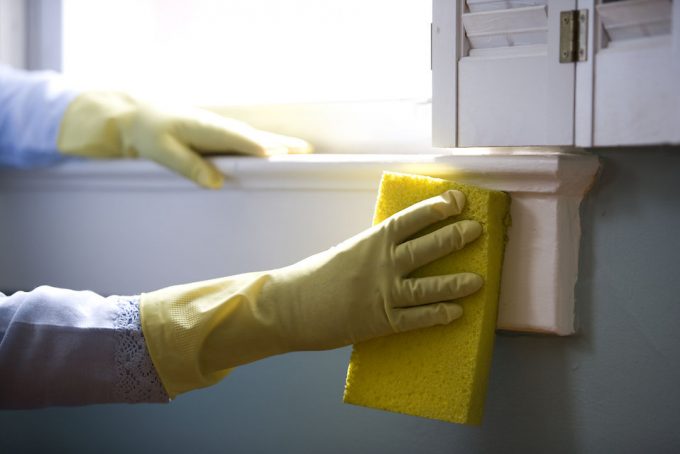
The renovation equation: turning new rooms into new profit margins
Maintaining facilities to the standards expected by guests, and determining how and when to upgrade those facilities, is one of the biggest challenges faced by any accom owner.
It is a simple fact that eventually every property will need an upgrade. However, there are strategies that can be followed to minimise disruptions and maximise the potential benefits of a renovation. Accom owners that carefully consider guests’ needs and use any property upgrade process as an opportunity to re-position itself in the marketplace will ultimately be those who get the most out of their renovation and improve the value of their hotel asset in the long-term.
Include revenue management early and often
All too often in the renovation process, revenue management is not often involved early enough, and as a result, the full benefits of renovation can be constrained. Most owners understand how revenue management improves the value of their asset: increased revenue leads to improved cash flow, which has a number of benefits from giving the provider greater day-to-day liquidity, to having money in the bank, to generating interest. The additional revenue that comes from the proper utilisation of revenue management systems and strategies can also directly impact a hotel’s bottom line results, making it a valuable tool in increasing a property’s valuation.
When renovating your asset, timing is everything
Some accom owners may take the view that there is never a good time to renovate a property as it may result in a whole or partial closure of their business. Unfortunately, in the longer-term, there is no way to avoid substantial property upgrades of products, guest experiences and technology.
One of the first considerations an accom provider has is whether to close only part of the hotel and stagger building work and “trade-through,” or to undertake a full closure. The answer to which approach is best for a property relates to whether a property needs to maintain short-term cash flow, in which case a partial or staggered renovation is probably the best choice. However, if a hotel owner’s focus is long-term revenue growth or reopening to re-position the hotel at a different star level, a full closure is often the better option.
[pro_ad_display_adzone id=”21061″ align=”left” padding=”3″]Should the decision be made to “trade through” the actual renovation process, revenue management is vital in ensuring that the property is pricing itself correctly and continues to attract the right guests for the right price. Additionally, the detailed demand forecasts generated by revenue management systems can help improve hotel operational performance and control costs at a time when limiting unnecessary expenditure is key. Accurate demand forecasting to account for periods of higher or lower demand should be at the foundation of optimal labour scheduling and cost management during and post renovation, too.
Many accom owners try to schedule renovations (part or full closure) for the off-season because lower demand means more flexibility for construction and less guest displacement. What is even more important, however, is to consider the timing when the construction will be complete. Hoteliers need to plan their re-openings to take advantage of the momentum the updated facility will create. As such, they need to factor in the optimal time to target guests free of any competing interests. For example, if a new hotel opens nearby during the same time as a renovation is complete, the potential re-branding opportunities could be tarnished. Launching new room types during a time when market demand is low could also impact revenue opportunities. This is vital for the medium- to long-term impact of renovations from a strategic pricing perspective.
Leverage online reviews for competitive advantage
One of the objectives of renovation is to change and improve the perceptions of a hotel’s sentiment online. Initially, the impact of renovations on online commentary may be negative and focus on potential complaints about noise or availability of rooms during building works. However, in the longer-term, a hotel’s online reputation should be significantly enhanced once a property upgrade has been completed.
Accom owners need to continue monitoring what is being said about their hotel on both social media platforms and review sites during and after a renovation and act where appropriate. For example, if the prevailing comment in social media about a hotel is that building work is disrupting a guest’s check-in experience, consider scheduling aspects of the building to a less busy arrivals or departures time. In the same way, if a hotel is highly rated post renovation, and the majority of comments relate to the newly designed rooms and comfortable beds, the marketing department can build on these positive reviews and revenue managers may also be able to consider strengthening the pricing position of their rooms to maximise hotel profits and to help deliver a return on renovation investments.
Use a renovation to re-position and reprice
A major property renovation presents owners and investors alike with the unique opportunity to improve the value of their asset and re-position the property in the market. Beyond furnishings and enhanced product experience, part of relaunching refreshed rooms includes the development of a new pricing strategy to drive the return on the renovation investment. If a hotel simply operates in a ‘business as normal’ mode following a renovation, it doesn’t take advantage of the customer satisfaction increases and reputation score uplift resulting from the renovations.
A common practice is to set a renovation budget and new price points based purely on how much the renovation investment cost. It is more prudent to undertake a detailed re-positioning and re-pricing exercise prior to any building works which considers price vs. value. It is also warranted to examine the potential for more aggressive pricing and changed segmentation and thus new forecast methodology as a result of the impact of renovations in relation to the hotels new market position and competitive set. It is a worthwhile consideration to include the addition of an automated revenue system into the facility renovation budget. A sophisticated revenue system will enable the full benefit of the renovation investment to be realised in the fastest time possible through more aggressive pricing and better forecast performance in granular detail, thus driving operational efficiency and profitability.
While there are undoubtedly challenges associated with property renovations, those hoteliers who plan carefully, consider the right time to relaunch their restyled rooms and have the right pricing strategists in place are positioning themselves for success.
Rachel Grier is the Area Managing Director, Asia Pacific for IDeaS Revenue Solutions.







